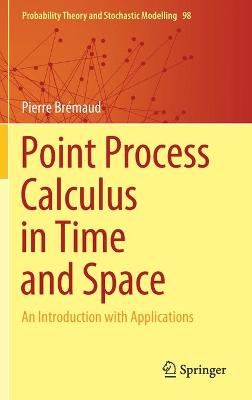Probability Theory and Stochastic Modelling
2 primary works
Book 78
The emphasis in this book is placed on general models (Markov chains, random fields, random graphs), universal methods (the probabilistic method, the coupling method, the Stein-Chen method, martingale methods, the method of types) and versatile tools (Chernoff's bound, Hoeffding's inequality, Holley's inequality) whose domain of application extends far beyond the present text. Although the examples treated in the book relate to the possible applications, in the communication and computing sciences, in operations research and in physics, this book is in the first instance concerned with theory.
The level of the book is that of a beginning graduate course. It is self-contained, the prerequisites consisting merely of basic calculus (series) and basic linear algebra (matrices). The reader is not assumed to be trained in probability since the first chapters give in considerable detail the background necessary to understand the rest of the book.
Book 98
This book provides an introduction to the theory and applications of point processes, both in time and in space. Presenting the two components of point process calculus, the martingale calculus and the Palm calculus, it aims to develop the computational skills needed for the study of stochastic models involving point processes, providing enough of the general theory for the reader to reach a technical level sufficient for most applications.
Classical and not-so-classical models are examined in detail, including Poisson-Cox, renewal, cluster and branching (Kerstan-Hawkes) point processes.The applications covered in this text (queueing, information theory, stochastic geometry and signal analysis) have been chosen not only for their intrinsic interest but also because they illustrate the theory.
Written in a rigorous but not overly abstract style, the book will be accessible to earnest beginners with a basic training in probability but will also interest upper graduate students and experienced researchers.

